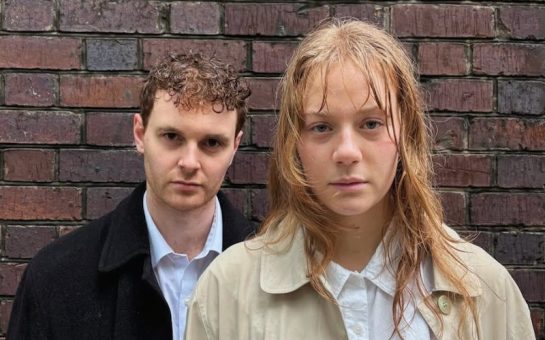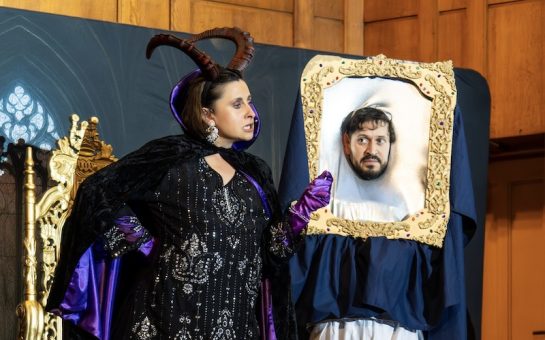Actor, writer and comedienne Jennifer Banks drew on personal experience for her fast-paced, two-woman play Strife in a Northern Town, which comes to Kensington’s Drayton Arms Theatre on Sunday May 13.
The play is based on the working class life Jennifer, who stars in the play alongside Tracy Gabbitas, observed when she headed back home to Bradford after 15 years working in London.
This was not long after Bradford was crowned the UK’s second worst place to live in Sam Jordison and Dan Kieran’s 2013 book Crap Towns Returns: Back by Unpopular Demand.
On the inspiration behind the show, Jennifer said: “This show is a celebration of ordinary people’s resilience when faced with the fallout of the decisions made by those in power.
“In an age of austerity, school dinner cuts and food banks, I think it’s something everyone can relate to, regardless of which part of the country they find themselves in.”
Unlike Jordison and Kieran’s book however, Strife in a Northern Town’s portrayal of life in towns like Bradford is unashamedly affectionate and features likeable working class characters in a variety of comic situations, many of them inspired by real people Jennifer has known.
Thinking of one of her favourite examples, she said: “There was one that was inspired just by a conversation I had with someone while I was working in Bradford who used to train dogs by giving them lumps of cheese.”
She added: “I was going to call the play The Second Crappest Town in the UK but then I couldn’t do radio interviews if I had crap in the title so we had to change it.”
And sure enough the play features a character that does just that, but also features a variety of more grounded working class characters including supermarket workers, receptionists and more.
The play’s mocking yet affectionate humour reflects the culture Jennifer comes from, which helps make the show more accessible to working class audiences appreciate the chance to see more of their own lives reflected on stage.
Jennifer says she notices a change in the make up of audiences when she performs at festivals, as people from backgrounds similar to her characters’ arrive to enjoy a chance to see some of their experiences expressed through comedy.
A particular highlight was when a group of shop workers came to a show in Manchester to see their lives reflected by characters Donna and Tracey.
However, bigger forces loom into view when the play’s heroines come up against a remote and negligent local council, which Jennifer says, reflects the reality of life for characters like hers, who feel powerless and alienated from political institutions.
For Jennifer the real redress for working class towns like hers comes not from politicians but rather from the actions of people like her characters.
As such she also thinks a lot about the representation of working class people on screen and stage and sees her play as part a tradition of northern working class comedies like The Royle Family to Shameless which showed how such characters could be portrayed by writers and actors who had come from that background themselves.
Jennifer said: “When you look at Shameless, a character like Frank Gallagher, you may not think that’s a sympathetic portrayal, but to me I know people like that.
“I’ve grown up with them.”
However, she is well aware that working class voices remain underrepresented in across the arts, from TV and film to comedy and theatre.
She said: “I’m not saying one 75-minute comedy show will fill this – there’s work to be done at every level of the industry, but staging a working class show and getting a different voice heard helps chip away at the current imbalance.”




